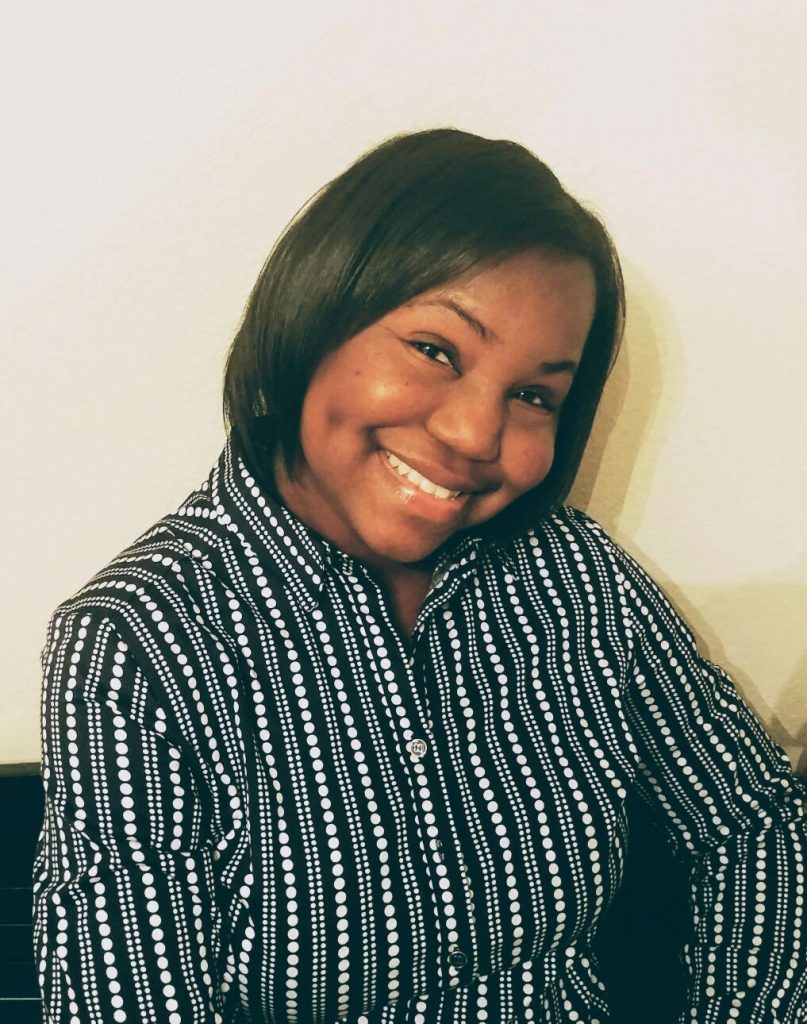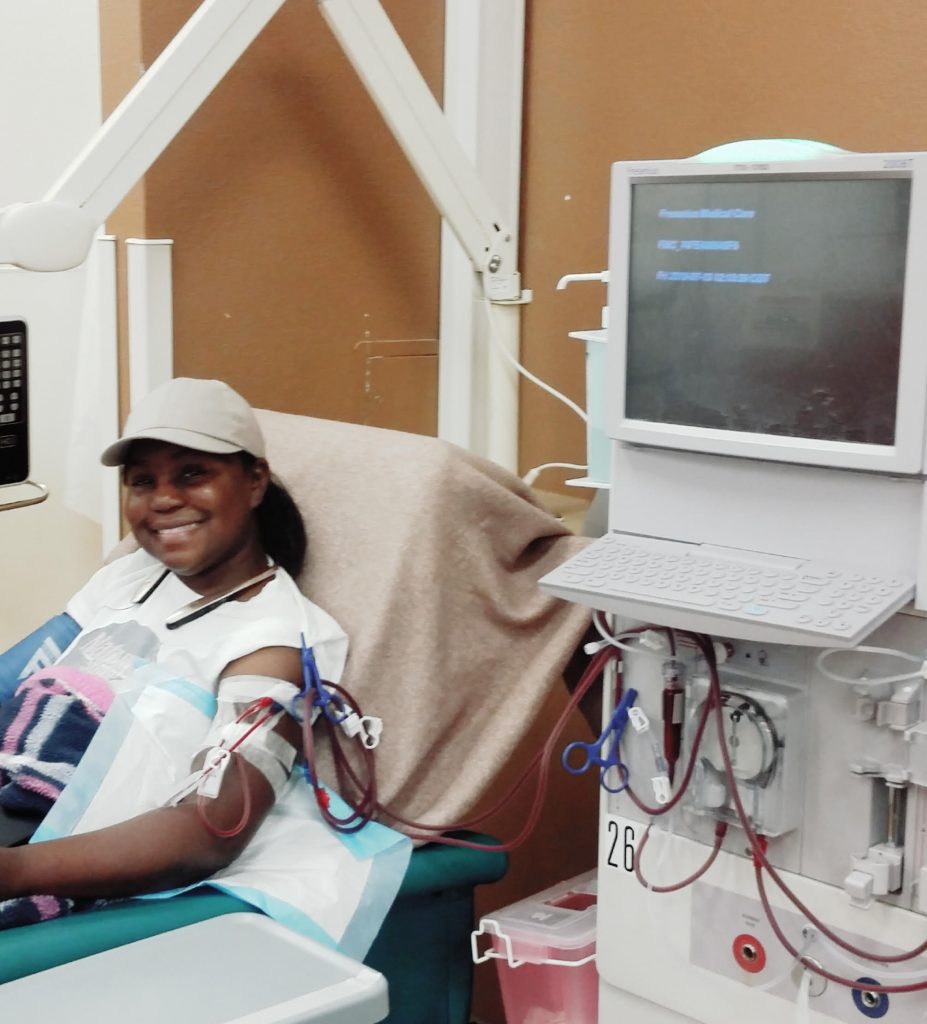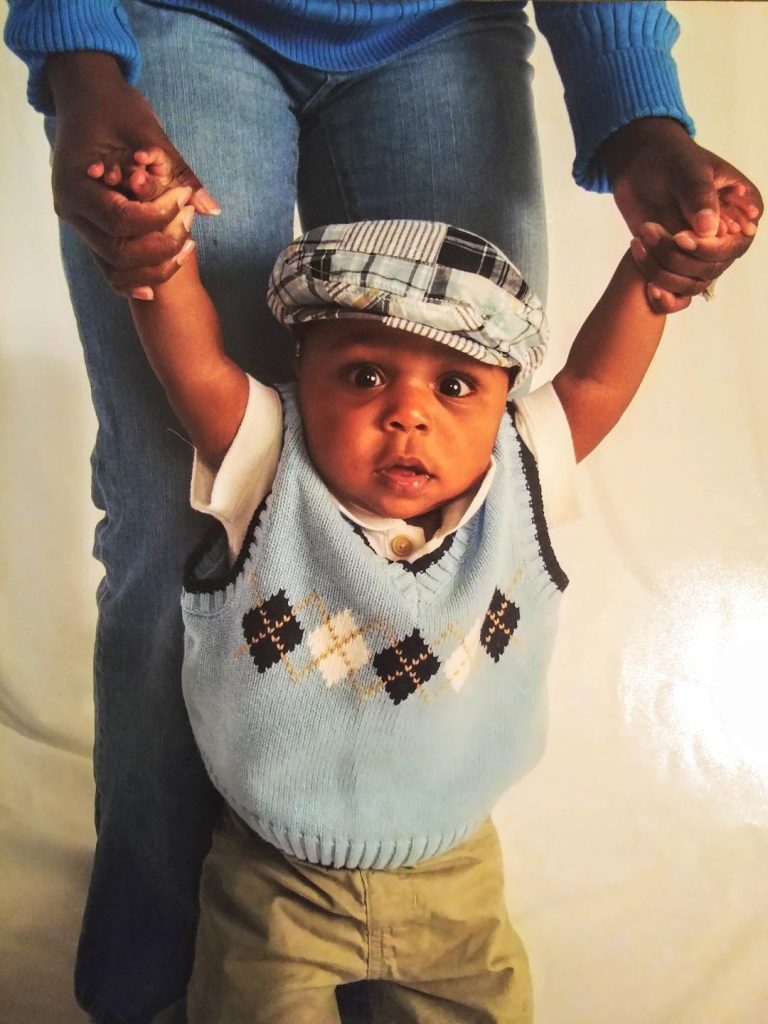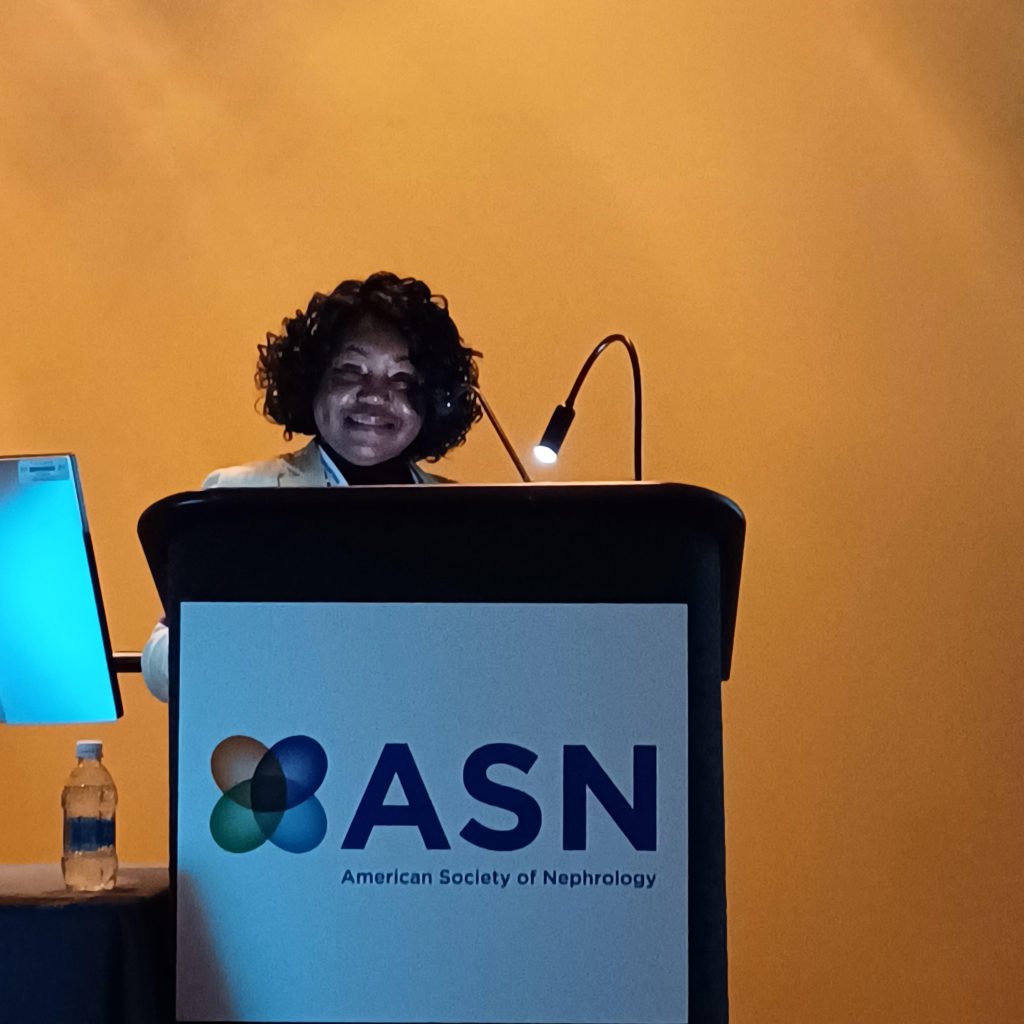By Deborah Pelaez, aakpRENALIFE Independent Writer
Imagine this. There exists a girl who possesses an appearance that deceives the eye, for she stands at a mere five feet one inch tall. Yet, do not be misled by her stature, for within her lies a smile of such magnitude that it illuminates an entire room! Engage in conversation with her, and you shall witness her unwavering attention as she listens intently to every word you utter. Oh, and let me not forget to mention that she hails from the great state of Texas, and despite two failed kidney transplants, she is a marvel beyond compare!
Precious McCowan was diagnosed with Type 1 diabetes at nine years old. As a child, her diabetes was well managed into her teen years. After graduating from high school, she attended Texas A&M University-Commerce and studied criminal justice. During her college years, she acknowledges that she did not do all the things she was supposed to do to manage her diabetes. As a result, shortly after graduation, not only was her blood sugar not under control, but she also had developed high blood pressure. Additionally, her endocrinologist said there were some issues with her kidney function that would need to be monitored.

As a young adult, Precious was not too concerned about her health and felt optimistic that her health issues would be resolved. She did start to better manage her diabetes again and was able to get her blood sugar under control. After college, Precious’s career was taking off. She found work as a Dallas County Sheriff Officer and within a few years, she was working her way up to becoming a sergeant.
But that’s not all—Precious also found love and tied the knot, and in 2008, she experienced the incredible joy of bringing her son, William, into the world.
As the years went by, Precious’s kidney function continued to decline and at stage 3b, she was referred to a nephrologist. Her nephrologist monitored her closely for about a year, and she was working toward getting on the kidney transplant waitlist.
However, in 2010, Precious suddenly fell very ill and crashed into dialysis at the hospital. She did in- center hemodialysis for four months before a ray of hope emerged in the form of a simultaneous kidney- pancreas transplant, gifted to Precious from a generous deceased donor.
But fate seemed determined to test Precious’s resilience. After only seven months with her transplants, Precious developed severe diabetic gastrointestinal issues and was hospitalized. She also developed pain where her transplants were placed caused by inflammation in both organs. After several days in the hospital, doctors were unable to save her organs, and she woke up in the ICU on dialysis.


Tragically, during this same time, just four days before she lost her organs, her two-year-old son, William, unexpectedly passed away. During this extremely difficult time, Precious and her husband made the courageous decision to donate their beloved son’s organs. Precious shares, “It was bittersweet for me, but my husband and I decided to donate our son’s organs to be a blessing to someone else.”
During this very trying time, Precious was both mentally and physically drained. It took her a while to get her health in order, and she was in and out of the hospital multiple times. Then, one day, she woke up and told herself, “I am not going to let kidney disease beat me.” Pulling together all the strength inside herself, she started to follow doctors’ orders and made progress in her health. Her nephrologist saw the change in her, and she was asked to become a facility-patient representative at her dialysis clinic.
In this new volunteer position, she enjoyed being a liaison between staff and patients as well as mentoring new patients coming into the clinic. “My role was to give them the patient aspect and help them learn ways to thrive on dialysis instead of just surviving.”
Engaging in a hobby or leisurely activity is one of the topics Precious often spoke to patients about. She asked them to tell her about things they enjoyed doing before dialysis, and then encouraged them to find a way to keep doing those things, even if modified.
One memorable patient that Precious mentored used to be a runner. Running was his passion, and he was depressed and discouraged that he would never be able to do that again due to his health issues. Precious encouraged him to set a SMART goal to get physically active again in some way that he would enjoy. However, the patient shared that he did not care about living enough to make goals at that time. Eventually, with Precious’s encouragement, this patient began walking, and it became a source of enjoyment for him.
SMART goal stands for Specific, Measurable, Achievable, Relevant, and Time-Bound.
As a mentor, she also started to learn about kidney advocacy groups and how
she could get more involved in the larger kidney community. She found and got involved in the American Association of Kidney Patients, as well as many other kidney organizations, including: Dialysis and Kidney Transplant Facility Patient Representative; Past Chair, End Stage Renal Disease (ESRD) Network 14 of Texas Patient Advisory Council; Patient Representative, ESRD Network 14 of Texas Medical Review Board; Patient Advisory Committee Member, The Forum of ESRD Networks; Patient Advisor, Texas Medical Foundation (TMF); Subject Matter Expert, Kidney Community Emergency Response Program; Patient Advisory Council Member, Kidney Health Initiative/American Society of Nephrology; Peer Mentor, National Kidney Foundation; Patient Representative, National Kidney Foundation Public Policy Committee; Patient Advisor, National Kidney Foundation PCORI; Leader, National Kidney Foundation Region 7; Member At-Large, United Network of Organ Sharing Kidney Committee; Patient Representative, National Quality Forum Renal Committee; Member, Centers for Medicare and Medicaid Services (CMS), Person and Family Engagement Committee; and Patient Advisor, Kidney X.

After eight years of in-center hemodialysis, she received her second kidney transplant in 2019. Unfortunately, in 2022, her second transplant failed due to the BK virus and her antibodies attacking her organ. Currently, she is on in-center hemodialysis and, as a type 1 insulin-dependent diabetic, is still taking insulin several times a day.
BK virus: BK viral nephritis is a dangerous infection that happens when the BK polyomavirus reactivates inside your body after a kidney transplant. Learn more.
Precious received a Master of Science in Human Behavior while on dialysis, and is currently pursuing her PhD in the field of Human Behavior. She continues her advocacy work and mentors patients at her dialysis center. At this time, she is on the kidney transplant waitlist and is also looking for a living kidney donor.
Precious has encountered many health challenges since a young age and knows the difficulties of managing chronic illnesses. For this reason, she strives diligently to advocate for improved patient and family engagement, equity, and health literacy. Precious believes that “a strong community is built on efficient advocacy, and change is established when voices are heard.” She stands firmly on the motto: “To be of service to all mankind.”
























